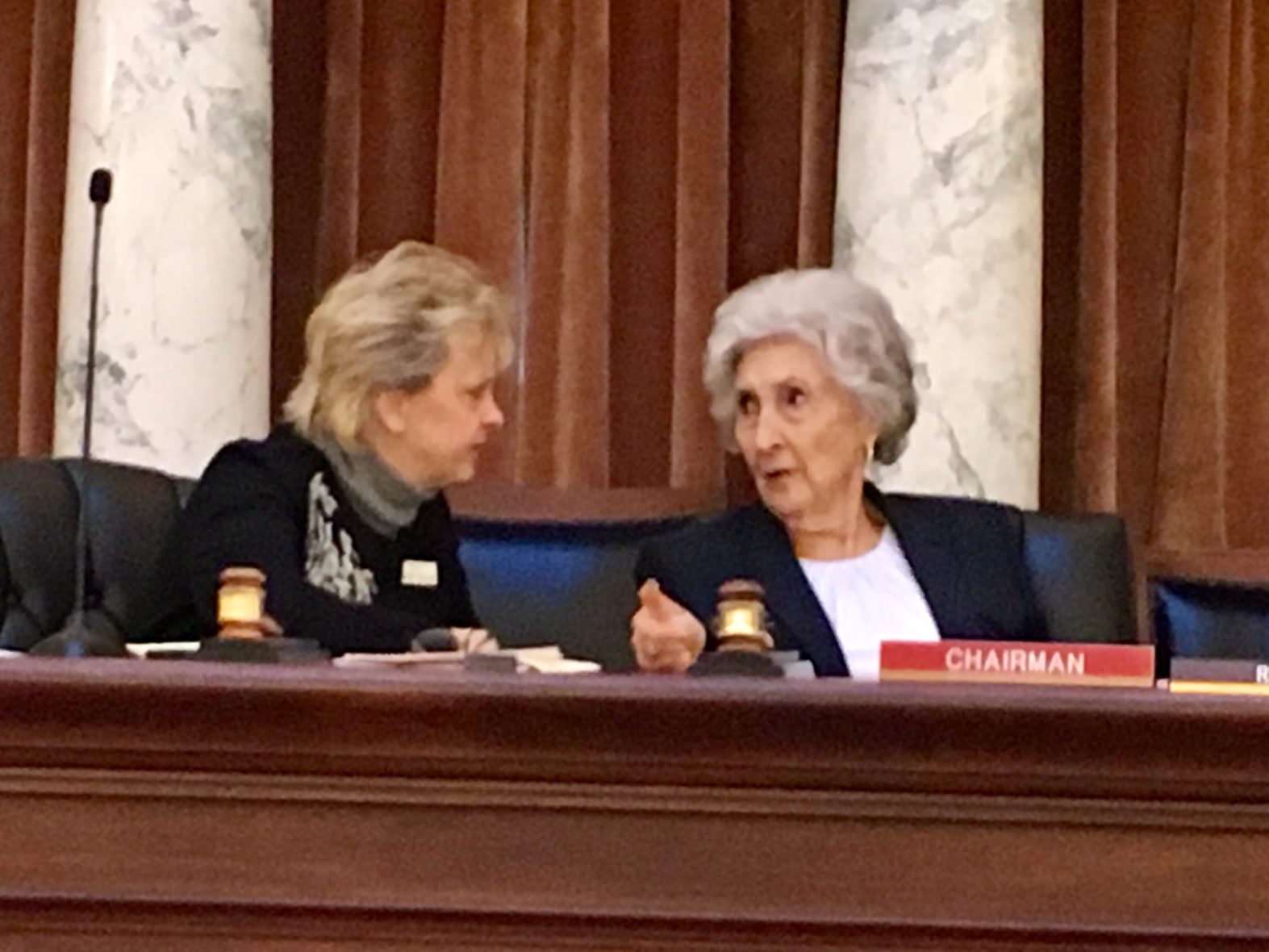(UPDATED, 12:49 p.m., with comment from Otter.)
In a dramatic end-of-session reversal, legislative budget-writers voted to put $550,000 into the rollout of a new statewide reading test.
Tuesday morning’s vote is the latest chapter in the dispute over the reading test — one of the last big unresolved issues of the 2018 legislative session.

And the drama picked up where it began 22 days ago, in the Legislature’s Joint Finance-Appropriations Committee. On Feb. 26, JFAC voted unanimously to zero out funding for the new reading test, and ordered state superintendent Sherri Ybarra to stop work on a statewide test contract.
The outcome was entirely different Tuesday morning. This time, JFAC voted 16-3 to fund the statewide test rollout. It’s a bit of a funding patchwork. JFAC put $383,800 into Ybarra’s departmental budget for the reading test, and her department has $166,200 in the K-12 budget to put into literacy programs.
The new budget now must pass both houses before it goes to Gov. Butch Otter’s desk. This budget will first go to the House — which voted down the first version of Ybarra’s department budget Friday, because it omitted funding for the reading test.
Retooling the statewide test — the Idaho Reading Indicator — is seen as a linchpin of the state’s “literacy initiative.” With some 35,000 kindergarten through third-grade students reading below grade level each fall, the state has been pumping about $11 million a year into extra help for at-risk students. The state has distributed this money based on schools’ historic IRI scores.
Tuesday’s turnaround
JFAC’s discussion adhered to the theme that has marked the reading test impasse — the question of whether Idaho should adopt a new, single exam. Several key legislators have said the state needs more conclusive data from the new test, and they have argued that school districts and charter schools should be able to choose their tests.
Sen. Dean Mortimer, R-Idaho Falls, led the pushback against the test rollout. The Senate Education Committee chairman proposed a $100,000 line item — one-time money to continue the test pilot.
Mortimer told his JFAC colleagues that he has had a change of heart about the statewide pilot. After spending the past few weeks talking with reading specialists and school personnel, Mortimer says the state should not rely “solely” on the online test that is now being piloted in more than 50 schools statewide.
“We have a long ways to go to understand what’s going on with K-3 literacy,” he said. “We can do better.”
Rep. Maxine Bell, JFAC’s retiring House co-chair, said she had faith that the State Department of Education’s “professionals” would carry out the rollout. And she also made a pragmatic argument for funding the rollout; after Friday’s resounding House vote, she said, it was time to write up a budget that can pass both houses and get signed into law.
“I want this to palatable and comfortable to enough people who care about the kids’ reading,” said Bell, R-Jerome.
Ultimately, JFAC voted 16-3 to fund the statewide rollout — by inserting the $383,800 of ongoing money into Ybarra’s departmental budget. Mortimer opposed the budget, and was joined by Sen. Steve Bair, R-Blackfoot, and Rep. Steve Miller, R-Fairfield.
Rep. Wendy Horman, R-Idaho Falls, was absent Tuesday; like Mortimer, she has pushed back against the statewide reading test.
What happens next
The JFAC vote brings Ybarra one step closer to an end-of-session political win. In December 2016, she selected Dallas-based Istation as the vendor to replace the IRI — for a contract that could run for as long as five years. On Thursday, Ybarra joined her State Board of Education colleagues by coming out in favor of a statewide test.
In a statement Tuesday morning, Ybarra praised the JFAC vote.
“I’m thrilled and thankful the committee revisited and restored this budget request,” Ybarra said. “We continue hearing overwhelmingly positive feedback from teachers in the schools piloting the new test this year. This is a high-quality assessment that gives a more detailed view than ever before of students’ reading readiness and where they need assistance. I’m excited that our plan to extend this new reading test to all Idaho schools is moving forward.”
Otter also telegraphed his support for the new budget bill.
“I’m pleased that Idaho’s K-3 students will have a better resource in place next year to help ensure they receive the individualized reading instruction they need to become proficient readers,” Otter said in a statement. “The action taken in the Finance Committee this morning supports the work of the many educators who volunteered their time over the past four years to bring forward research-based best practices to implement in Idaho classrooms.”
If the budget bill passes, Istation will have the green light, and taxpayer funding, to deliver the new test statewide in 2018-19. That’s consistent with the timetable set in the state’s December 2016 contract.
But first, the new budget bill has to work its way through the legislative process. It can take two weeks for a budget bill to pass both houses — but with legislative leaders hoping to wrap up the year’s work by the end of the week, they could fast-track the process.
More reading: An in-depth Idaho Education News-Idaho Public Television series on the state’s literacy initiative.
